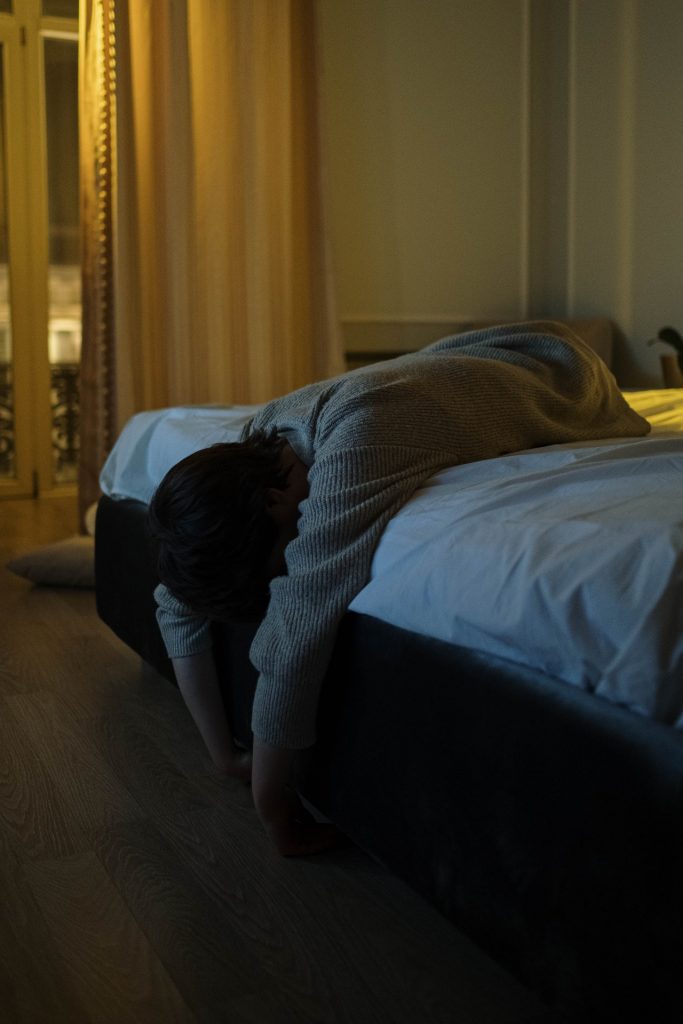There is a strong connection between sleep and mental health. Lack of sleep can negatively impact your mental wellbeing. Also, anxiety can affect sleep patterns and cause insomnia, while depression can cause someone to sleep too much or too little. If you are suffering from anxiety or depression, it may be beneficial to talk to a counselor. You can find an online therapist at BetterHelp.
Sleep is important for mental health, and we all need enough sleep. Lack of sleep can cause problems, but why do we need it?
Why Is Sleep Important?
When we sleep, our brain activity goes through different stages. Every one of these unique stages of sleep is important for our mental health. Our learning and thinking abilities are negatively affected by lack of sleep. Sufficient sleep will also help to improve our emotional wellbeing.
Furthermore, we need enough REM sleep because it is required for us to regulate information processing. As we sleep, our brain evaluates our thoughts and experiences. Without sleep, our mental health suffers, and we are unable to consolidate positive emotional features. This can even lead to suicidal thoughts and behaviors.
The relationship between sleep and mental health goes both ways. Poor sleeping patterns and insufficient sleep can cause mental health issues. However, mental health issues can also contribute to poor sleep.
In fact, close to 75 percent of people with depression show signs of insomnia. Conversely, they often have fatigue, sleepiness, and hypersomnia. Proper sleep may be an effective way to reduce the symptoms associated with depression.
Anxiety disorders also have a strong correlation with sleeping issues. Fear and worry can cause the mind to race which greatly contributes to sleeping difficulties. Additionally, losing sleep can cause someone to worry even more. This excessive worry can create a worsening cycle of insomnia and anxiety. PTSD can also negatively impact sleep because thoughts of events will replay in an individual’s mind. This can cause nightmares and alertness, which, in turn, causes insomnia.

Research also shows that poor sleep can cause anxiety in some people. In fact, the research indicates that it may go so far as being a factor in developing an anxiety disorder.
Methods to Improve Sleep
Sleep disruptions, difficulty falling asleep, and trouble staying asleep can all affect our mental health and wellbeing. Improved sleep may even be a good supplement to other treatment options to prevent and fight mental health issues.
Our bodies and minds are built to follow the sun. This means that light during the day can help improve sleep and positively affects our sleeping patterns. However, light at night time can have a detrimental impact on the quality of our sleep. It may be best to get off the computer, television, and phones well before bedtime.
You may also want to try to remove any blue lights from the sleeping area. Leave your laptop closed and your phone in a drawer. Even the light from an alarm clock may be enough to affect your sleep quality. You should also try to keep the noise level low and the temperature as comfortable as possible. Lastly, make sure you have a comfortable mattress, pillow, and bedding.

Regular exercise can go a long way towards a restful sleep. However, it is best not to exercise right before bed. Try to get exercise while the sun is out to get the sleep benefits of it. It is important to exercise regularly exercise for our physical and mental health.
Caffeine can also reduce the quality of sleep and makes it difficult for some people to fall asleep in the first place. The consumption of caffeine late in the day or in the evening should be avoided to improve your sleeping quality and patterns. Instead of drinking coffee or soda that contains caffeine, you may want to try a lavender or chamomile tea. Combine this with a relaxing activity like meditation or reading, and you are setting yourself up for restful sleep.
If you still have trouble sleeping, you may want to try a melatonin supplement. Melatonin is a sleep hormone that signals when it is time to go to sleep. It has been shown to help people fall asleep faster and improve the quality of sleep. Some people also benefit from l-theanine and valerian root.
It is important to have good sleep patterns and quality sleep if you want to improve your overall mental wellbeing. Poor sleep can cause poor mental health and vice versa. As you actively pursue better mental health, it is important to consider how sleep can affect your psychological states. If you have poor sleep related to anxiety or depression, try to find ways to treat the sleep issues’ root. However, you may also benefit from treating insomnia itself.

Marie Miguel has been a writing and research expert for nearly a decade, covering a variety of health- related topics. Currently, she is contributing to the expansion and growth of a free online mental health resource with BetterHelp.com. With an interest and dedication to addressing stigmas associated with mental health, she continues to specifically target subjects related to anxiety and depression.
Featured Image by Pixy.org




